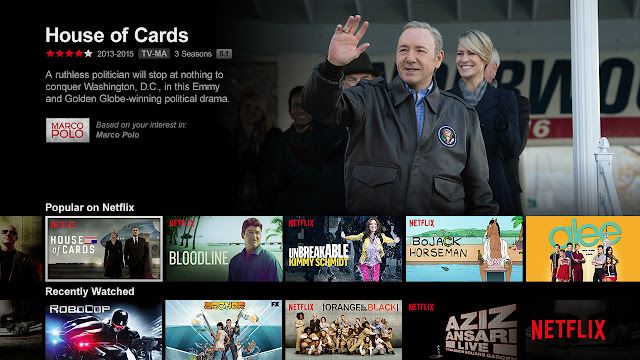News this week that the BBC is to make 1000 managers redundant will not come as a shock to many, not least of whom some of the very wonks in the corporation's myriad middle-management layers who are about to be shown the door.
But, before you worry that this is about to become a Daily Mail-style assault on dear old Auntie (an institution that provided a more than 30 years of employment to my father), let me assure you that it is not. Because, some of those those departees will no doubt be from the strategy departments who would have seen writing on the wall a long time ago.
The redundancy round is the result of the BBC facing a shortfall of £150 million in its funding, largely the result of dwindling numbers of people paying for a TV licence, the BBC's main means of revenue since 1946 when it was introduced to get the corporation's nascent TV service back up and running after World War II.
However, it is today well accepted that ‘traditional' TV viewing is falling, as tablets, smartphones, gaming consoles, PCs and the streaming services accessed via them increasingly eat into the eyeball hours of established broadcasting.
Crucially, more and more people - especially under the age of 50 - are just not bothering to pay for a TV licence on the grounds that they’re not using broadcast television anymore, while numbers for younger viewers between 16 and 24 are dropping off completely, as they get what they want from streaming services.
This trend is being led, inevitably, but the US, where online video streaming leapt by 60% in the final quarter of last year. The Nielsen ratings bureau found that Americans still consumed more than four hours of television a day, but even that is starting to fall by about 4% per month, while streaming video viewing is now up to about 11 hours a month (and could be more as devices like Roku plug-ins, PlayStations and smartphones aren’t included in the figures).
By far the biggest group consuming streaming services like Netflix now are those between 18 and 49, traditionally the sweetspot for advertisers, which presents a major problem for commercial TV companies and their traditionally big-spending clients, who are at risk of being denied the attention of their most lucrative demographics.
All of which makes the prospect of Messrs Clarkson, Hammond and May resurfacing on Netflix with a reinvention of Top Gear look all the more intriguing. Netflix has already demonstrated via House Of Cards that it, too can offer ‘appointment TV’ as much as being a surrogate video store, but with the refreshing recognition that people do and will consume such high quality shows in a binge. Some critics have argued that this change to watching series television is more a reflection of the 'want it, and want it now' generation, that we lack the patience to wait a whole week for a next instalment to follow. But you only have to ask those who've watched entire seasons of 24 in a weekend via DVD, whether the weekly cliffhanger is workable any more.
However, if speculation about the former Top Gear heads moving to the streaming service bears out - and it is a perfectly logical idea - it could be seen as a major turning point in how we watch television. Gripping thrillers are one thing, but a magazine programme featuring three badly dressed, middle-aged berks larking around in cars is a different prospect. Either way, it's a sign that broadcasters now have to accept that they are sharing space with a totally different television model.
That even Sky launched a dedicated channel for TV box sets demonstrates the instantaneous nature of our viewing habits. In many households as it is, the idea of an evening of varied light entertainment and informative current affairs has eroded completely, as smart TVs dial up YouTube marathons of cats playing pianos, and others succumb to ‘just one more’ Boardwalk Empire before closing down the Blu-ray Disc player at 2am.
Just like “pop will eat itself”, the famous NME interview that spawned the phrase (and the band) a long time ago, TV is in danger of doing the same. Mainstream television in any country now is so formulaic and homogenous that it truly has become a mildly opiate leaf for people to chew mindlessly on.
No wonder people are choosing to gorge on the brilliant and absorbing writing of Breaking Bad, Game Of Thrones and even cracking comedy like The Big Bang Theory. It’s still television, of course, but its availability across a multitude of the screens we all now possess means that getting a hit off something good is no longer dependent on schedulers or ad breaks.



No comments:
Post a Comment